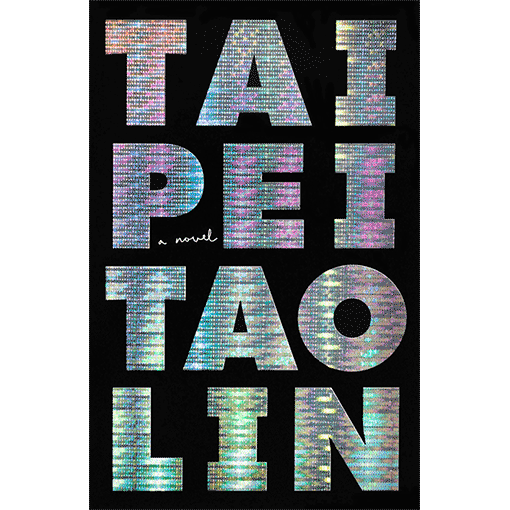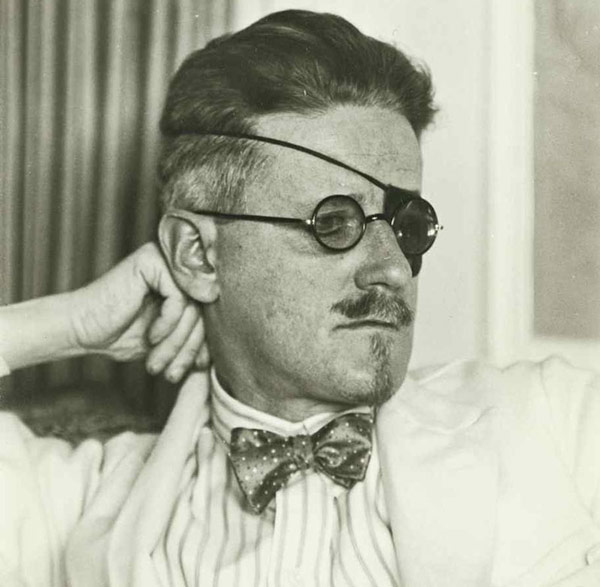Experimental fiction as genre and as principle
A few years ago at Big Other I wrote a post entitled “Experimental Art as Genre and as Principle.” That distinction has been on my mind as of late, so I thought I’d revisit the argument. My basic argument then and now was that I see two different ways in which experimental art is commonly defined.
By principle I mean that the artist is committed to making art that’s different from what other artists are making—so much so that others often don’t even believe that it is art. As contemporary examples I’m fond of citing Tao Lin and Kenneth Goldsmith because I still hear people complaining that those two men aren’t real artists—that they’re somehow pulling a fast one on all their fans. (Someday I’ll explore this idea. How exactly does one perform a con via art? Perhaps it really is possible. Until then, I’ll propose that one indication of experimental art is that others disregard it as a hoax.) Tao visited my school one month ago, and after his presentation some folks there expressed concern, their brows deeply furrowed, that he was a Legitimate Artist—so this does still happen. (For evidence of Goldsmith’s supposed fakery, keep reading.)
Eventually, I bet, the doubts regarding Lin and Goldsmith will fall by the wayside. Things change. And it’s precisely because things change that the principle of experimentation must keep moving. The avant-garde, if there is one, must stay avant.
That’s only one way of looking at it, however. Experimental art becomes genre when particular experimental techniques become canonical and widely disseminated and practiced. The experimental filmmaker Stan Brakhage, during the 1960s, affixed blades of grass and moth wings to film emulsion, and scratched the emulsion, and painted on it, then printed and projected the results. Here is one example and here is another example. And here is a third; his films are beautiful and I love them. (The image atop left hails from Mothlight.) Today, countless film students also love Brakhage’s work, and use the methods he popularized to make projects that they send off to experimental film festivals. (Or at least they did this during the 90s, when I attended such festivals; I may be out of touch.)
Those films, I’d argue, while potentially beautiful and interesting, are not necessarily experimental films. As far as the principle of experimentation goes, those students had might as well be imitating Hitchcock.
55 Points: Shoplifting from American Apparel
1. This is a review of the recent film adaptation, not the book, although I’ll also say a few things about the book.
2. I saw the film on 14 March at the Logan Theatre in Logan Square, Chicago. It was a special event. About 70 people were in attendance.
3. The director, Pirooz Kalayeh, was there, and I spoke with him before and after the screening. Brad Warner, who plays Tao Lin (or “‘Movie’ Tao Lin”), was also in attendance.
4. Pirooz gave me a poster and a button and a DVD copy of the film. Thank you, Pirooz!
5. I’ve read Shoplifting maybe half a dozen times. I’ve also taught it twice. It’s my favorite of Tao’s books and I consider it something of a masterpiece.
6. Some people persist in thinking Tao isn’t a stylist, but I think he’s a brilliant stylist. Although maybe people are nowadays more convinced of this? I don’t know.
7. As Tao himself has pointed out (see here for instance), all of his books are written in different styles, something that I think obvious when one really looks at them.
8. I suspect some people really aren’t looking at them.
April 15th, 2013 / 8:07 am
Last Friday, Tao Lin came and presented to my department at UIC on his development as a poet, 2001–2013. The notes from his talk are here. I also recorded the event, and will see what I can do about making that available, should all parties prove willing.
My Experience Writing for Muumuu House

Wrote about Tao Lin for Hobart.
Exchanged emails with Tao about what I wrote.
Tao cut and pasted part I’d written about Zac Zellers and Marie Calloway and wrote beneath it “this seems funny to me.”
Replied with a paragraph in which I described Zac Zellers as the “Where’s Waldo” of Ann Arbor.
19 mins later got email from Tao saying “you should write something about this and send it to me.”
The Zachary German Documentary, “Shitty Youth”
Zachary German’s web presence was one I once compulsively checked-on for updates, that I consistently enjoyed, intriguing and funny, and now his web presence is gone, mostly, because he wanted it to go away.
Adam Humphreys’s new documentary, Shitty Youth, which shares a name with German’s possibly defunct “radio show”/podcast, portrays German as a willfully difficult or potentially alienating person socially who is very attuned to style and taste, the author of one novel, Eat When You Feel Sad, which got good attention and praise, who has released almost no writing since, in part because much writing, including his own, is not up to his very high standards.
November 5th, 2012 / 5:54 pm
You Private Person: An Interview with Richard Chiem
I interviewed Richard Chiem on the occasion of his first book, You Private Person, published by Scrambler Books. Photos via Frances Dinger and (the above) Matthew Simmons.
What was your favorite book when you were younger? What books have made you lol or cry or feel excited?
I think I read a lot of Goosebumps books and Animorphs books, and I was trying to collect the whole series for each. If I think about 1995, there were many times of me just waiting by myself inside a Safeway, because you could find them in the book aisle. I could read one of those books in about two and a half hours, so it became an easy addiction, since I wanted to know everything, to know the whole story. I would stack up my stacks of books next to my video games and my comic books in towers. They were each numbered like episodes, and in different colors. It seemed perfect to me at the time to have them all. I would save up six or seven dollars, everything other week or so in 1995, waiting in line at a Safeway. I recognized a particular need to read. But they never made me cry or laugh. I don’t really remember what exactly I was feeling when I was eight years old, in third grade, but I remember those simple horror and adventure stories, and I can still talk about them.
I turn on subtitles when I watch movies now. Some of my friends hate it and some really like it. It was adding another dimension to every movie and it quickened the pace of the viewing experience for me. And I watch a lot of movies. I always write after watching
a movie when everything still feels really alive about the story.
I Am Prepared to Read Many More Novels About People Fucking
I haven’t read Sheila Heti or Ben Lerner’s recent novels, the impetuses for Blake Butler’s recent, anti-realism-themed Vice article, but I’d like to respond to Blake’s finely-written itemized essay, because I, personally, continue to desire novels written by humans, which relate, slipperily or not, to human reality—subjective, strange and ephemeral as it is–novels which deal with such humdrums as sex, boredom, relationships, Gchat, longing, and, beneath all, death. I want a morbid realism.
I agree with Blake that a reality show like The Hills and social media such as Facebook create stories by virtue of humans doing simply anything. The documenting, sharing, and promoting of mundane everyday human life is more prevalent and relentless than ever before. In this environment, literature (and movies) about humans (most controversially, about privileged, white, hetero humans) that presents everyday drank-beers-at-my-friend’s-apartment life, wallows in self-pitying romantic angst, and doggy paddles po-faced through mighty rivers of deeply profound ennui can potentially seem annoying, or boring, or shittastical.
White Boy Drag: Jackie & Lily Talk, Episode 1
This is a conversation. It is 1:06am MST. We are both HTML Giant contributors. We are also both Asian. This is happening IRL.
Lily Hoang: So, imagine there’s someone sitting at a café, smoking a cigarette, drinking a fucking Americano, reading David Foster Wallace. What do you think?
Jackie Wang: Who is this wienerschnitzel? Lemme guess. A white boy with lots of feelings.
LH: Haha, no, it’s me: I’m in white boy drag!
JW: White boy drag?! That’s an interesting term. What exactly does that mean? You’re not going to kill yourself and make everyone else feel bad about it, are you? Cause that would be taking the performance a little too far!
LH: Well, it’s hard being a white boy, I gotta admit. Like you don’t know how hard it is. The guilt. The burden of genius. All the privileges. It’s hard to balance, keep the head sane, ya know?
JW: You know what I hate about white boys? They’re always complaining about how they can’t get laid, but it seems obvious to me – like – why they can’t get laid. Should someone tell them? Should I be the one to tell them?
Repetition as rule, repetition as defamiliarization,and repetition as deceleration
As promised, back to Shklovsky! In Part 1, we examined his fundamental concepts of device and defamiliarization. In Part 2, we saw how context and history deepen what defamiliarization means. (That’s what led us to take our New Sincerist detour.) Now, in this third part, let’s return to Chapter 2 of Theory of Prose, where Viktor Shklovsky discusses “special rules of plot formation.”
Here it’ll be useful to remember that one of the meanings of rule’s root, regula, is “pattern.” Because Shklovsky is talking less about “rule of law” than he is about the patterns that devices combine to make.
Whenever you write—and it doesn’t matter whether you’re me or Chris Higgs or Mike Kitchell or Kathy Acker or Georges Bataille or whomever—you’re working with conventions. None of us invented these words, nor words, nor their spellings, nor syntax, nor sentences, nor punctuation. We didn’t invent writing. Nor did we invent literary criticism, or essaying, or blogging, or the HTTP protocol that transmitted this post to your computer. We’re all working within overlapping systems that, by virtue of the accident of birth, we find ourselves in. This should cause us no distress because rather than stifle our creativity or inhibit our originality, these systems and their rules provide the very basis for originality and creativity. Without any patterns or conventions we would be left with only noise, in which no innovation whatsoever is perceptible or even possible. It is in fact patterns and conventions that provide the opportunities for disruption and deviation.
In Chapter 2, Shklovsky is trying to understand patterns that authors use when stringing devices together. He isn’t interested in defining every pattern; nor is he interested in critically evaluating them (e.g., “this pattern’s better than that one”). Rather, he wants to examine commonly used ones and demonstrate (the following point is crucial) how even though the patterns are simple and common and predictable, they provide practically infinite opportunity for defamiliarization—and therefore artistry.
In the rest of this post I’ll focus on the simplest of those rules, repetition, with examples taken from Nirvana, Weezer, and Tao Lin.







